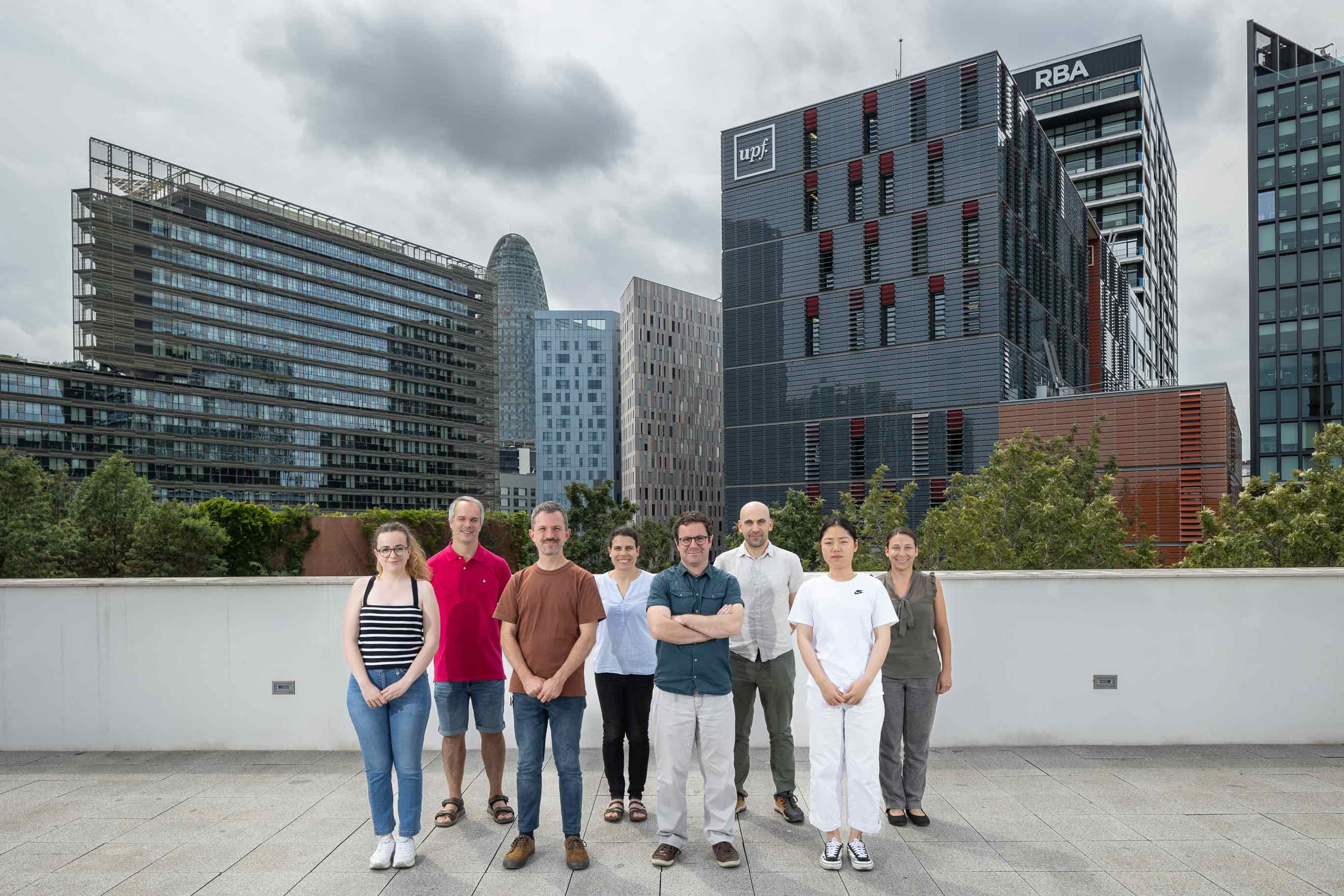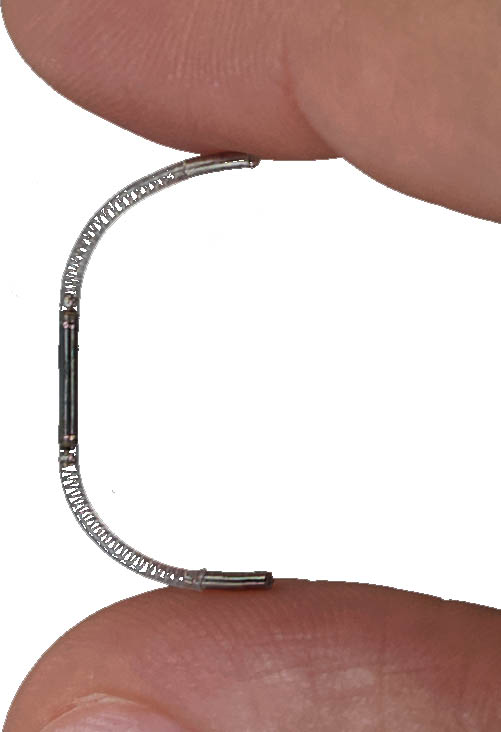FORESEE awarded €2.5m by the European Innovation Council to bring to market unprecedented technology for remote patient monitoring
FORESEE awarded €2.5m by the European Innovation Council to bring to market unprecedented technology for remote patient monitoring
FORESEE awarded €2.5m by the European Innovation Council to bring to market unprecedented technology for remote patient monitoring
The FORESEE project of the UPF Biomedical Electronics Research Group is the first proposal by a Catalan university to receive funding from the EIC Transition programme of the European Innovation Council (EIC), one of the most competitive and prestigious calls in the field of knowledge transfer.

Heart failure is a chronic, degenerative condition with a very high incidence, affecting 64 million people worldwide. The high costs related to patient care, monitoring and treatment necessitates new means and technologies to tackle this condition. In this context, the FORESEE project, coordinated by Dr. Laura Becerra-Fajardo, a researcher with the Biomedical Electronics Research Group (BERG) of the BCN MedTech Research Unit at UPF (TECNIO centre), together with Prof. Antoni Ivorra, head of BERG, as technological development coordinator, proposes to continue developing an intravascular sensor to monitor heart failure patients remotely. This innovative microsensing medical device, which is protected by two patent applications, may prove an enormous opportunity for health systems to optimize the medical management and treatment of this condition, improving patients’ quality of life and thus contributing to reducing the mortality rate, which currently stands at 50% five years after diagnosis.
The revolutionary nature of this technology has been recognized in the European call, EIC Transition Open, a programme that funds new technologies in any scientific field that have passed a proof of concept in the laboratory and aim to validate and demonstrate the technology in an environment relevant to its application in order to develop a solution for the market. This year’s call received 131 submissions from 26 different countries of which 14 have been selected, including the FORESEE project, which will receive funding of €2.5m over three years.
Vanesa Daza: “this funding is a great recognition of the research work carried out at Pompeu Fabra University and proof of the talent and pioneering character of the Institution’s research groups, and more specifically of the BERG, a group with an extensive, brilliant trajectory not only in research, but also in the transfer of this research”.
FORESEE has become the first innovation project by a Catalan university to be awarded funding by this prestigious European call that pursues excellence in the field of research into emerging technologies to stimulate innovation. Vanesa Daza, vice-rector for Knowledge Transfer at UPF, considers that “this funding is a great recognition of the research work carried out at Pompeu Fabra University and proof of the talent and pioneering character of the Institution’s research groups, and more specifically of BERG, a group with an extensive, brilliant trajectory not only in research, but also in the transfer of this research”.
This funding will provide a significant boost for the development and validation of the microsensing technology, since, as Ivorra highlights, “it will provide us with the necessary resources to progress at both the technological and the business level, always thinking about bringing this technology to patients in the future”.
Laura Becerra-Fajardo: "The funding will be used to develop the first prototypes and for the preclinical validation of the microsensing platform for heart failure".
Along these same lines, Becerra-Fajardo, co-inventor of the technology, explains that “The funding will be used to develop the first prototypes and for the preclinical validation of the microsensing platform for heart failure, taking into account the different opinions of patients and physicians and the guidelines established by the regulatory authorities for the approval of implantable medical devices”. The grant will also allow them to advance in the definition of the business model strategy to ensure future market access, as anticipated by Becerra-Fajardo “creating a spin-off that is attractive to investors and allows us to make a smooth transition towards future clinical validation”.
Unprecedented remote patient monitoring
The FORESEE project will develop a sensor based on the Senso-eAXON technology, previously developed by the same team and funded by the European Research Council. It consists of an injectable wireless microsensor with detection technology capable of measuring important biomedical parameters to monitor patients remotely.
These microsensors are a huge breakthrough in the field of remote monitoring with active devices due to their degree of miniaturization compared to the bulky implants currently used, such as pacemakers or other implants that are wirelessly powered but require an element of considerable size to obtain and transform energy.
Antoni Ivorra: “The implants are powered by an external system using a harmless method of wireless energy transfer that uses the human body as an electrical conductor of high-frequency currents”.
The device is a thin, flexible digital microsensor, which has no batteries or bulky components inside the implant to power it. It operates based on an innovative method, as Ivorra explains: “The implants are powered by an external system using an innocuos method of wireless power transfer that uses the human body as an electrical conductor of high frequency currents”. This allows not only achieving very thin implants, but also the ability to include sensors of different biomedical parameters.
The research group has developed and validated the method of wireless power transfer in humans for the development of injectable microstimulators thanks to two European research grants via the eAXON and EXTEND projects.

A solution to a global health problem
Becerra-Fajardo believes that the solution offered by FORESEE can be very well received in the healthcare market. In the United States and Europe alone, 10.5 million patients with chronic heart failure are candidates for remote monitoring using implantable systems. These systems optimize patients’ management and medical treatment, improving their quality of life and reducing the socioeconomic impact of heart failure. But, despite the high number of people affected by this condition and its high rate of death, as well as the expense to the health system, there is only one implantable sensor authorized by regulatory agencies worldwide. Becerra-Fajardo is of the opinion that “our microsensing technology can have a real impact on improving patient monitoring, creating a new, more attractive alternative on the market for users and health systems”.
Funding to evolve from cutting-edge science to market solution
The EIC Transition Open scheme provides funding to turn the research results generated by the EIC Pathfinder pilot projects and European Research Council (ERC) Proof of Concept (PoC) projects into commercially viable companies, validating technologies in real environments and creating the business model to bring the innovations to market.
The first stages of the technological development of the microsensor were funded by the programmes UPF INNOVALORA, ERC Senso-eAXON PoC, and CaixaResearch Validate of the "La Caixa" Foundation. In parallel, many research results were also generated through the eAXON project, funded by the ERC Consolidator Grant programme.
The good results obtained in these calls have led the FORESEE project proposal within the framework of the EIC Transition Open call. Ivorra is highly appreciative of the funding provided by this programme as “it helps in a highly critical stage, commonly called the Valley of Death, in which technology transfer must be carried out but there are no resources for development and validation”, and in this sense, he adds, “we think it very positive that the EIC has created this programme to promote European technological innovation and development”.
To facilitate this business development process, the programme supports all participating projects through the EIC’s Business Acceleration Services, which include coaching, mentoring and collaborative events. In addition, all the projects will be eligible for rapid access to the EIC Accelerator, a programme that provides support for the phases of marketing and scale-up.
The EIC Transition scheme is part of the Horizon Europe Framework Programme and reflects the European Commission’s clear commitment to scientific research as a key element in meeting the challenges and needs of our society.
